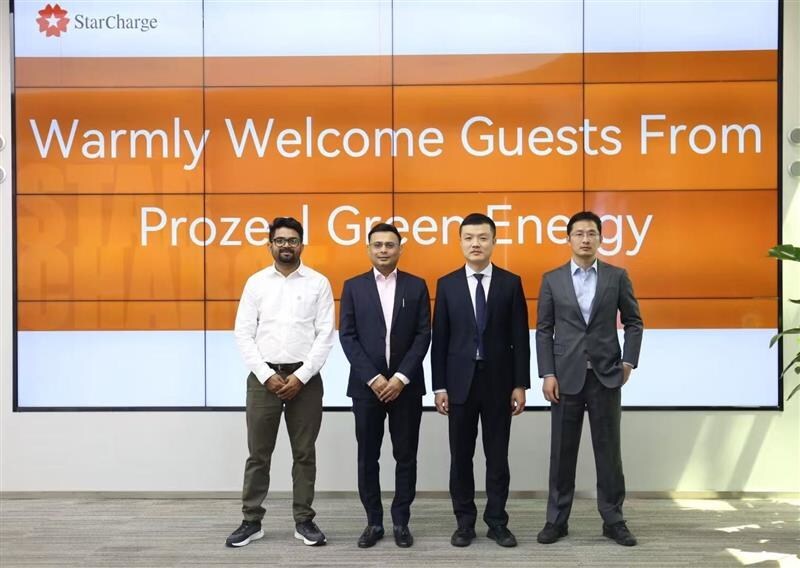
Source: cision | Published on: Wednesday, 07 May 2025
SINGAPORE, May 7, 2025 -- The Rockefeller Foundation announced its latest efforts to accelerate access to clean, affordable energy in vulnerable communities living near coal-fired power plants in developing countries, as part of its Coal to Clean Credit Initiative (CCCI). During Ecosperity Week in Singapore, the Foundation's partner ACEN Corporation, announced a new collaboration with GenZero, Keppel, and Mitsubishi Corporation and its subsidiary, Diamond Generating Asia, Limited, to advance the first CCCI pilot in the Philippines, while Verra, a nonprofit certification body that issues Verified Carbon Units (VCUs) for carbon reduction, officially approved the CCCI's methodology, the first of its kind. In addition, new analysis from The Rockefeller Foundation shows that supporting 60 projects by 2030 could unlock US$110 billion in public and private investment while preventing 9,900 early deaths and 640,000 lost workdays annually and generating 29,000 new permanent jobs.
Ashvin Dayal, Senior Vice President, Power and Climate at The Rockefeller Foundation, said: "Energy access and abundance define people's, community's, and country's futures. With electricity demand increasing around the world, The Foundation has been looking for ways to work with communities and countries as they make the best energy choices for their people. As more and more countries and communities choose to transition to clean energy sources, philanthropy has a unique role to play—we can take risks where others cannot and catalyze momentum needed. The projects announced this week will do just that, offering real benefits for people living and working in these communities."
Increasing access to clean energy technologies, which are now cheaper than coal power in most markets, improves the affordability of energy for households, communities, businesses, and governments, according to a recent report from the International Energy Agency. When paired with energy storage and smart grid technologies, renewables also deliver energy reliability and decrease dependence on volatile fossil fuel markets. In addition, studies have shown major public health gains from reduced air pollution from coal-fired plants, which is particularly significant for vulnerable populations such as children, the elderly, and those with pre-existing respiratory or cardiovascular conditions.
This Work in Action:
CCCI aims to unlock market demand for transition credits while addressing the needs of vulnerable communities, creating new jobs, expanding access to affordable energy, driving economic growth opportunities, and improving public health, alongside enhancing climate resilience. Since 2022, The Rockefeller Foundation has invested over $10 million to identify eligible communities, build an ecosystem around transition credits for high integrity, and support pre-feasibility assessments.
In 2023, The Rockefeller Foundation announced a new collaboration with ACEN Corporation, the listed energy platform of the Ayala Group, to explore leveraging carbon finance to replace its 246 MW South Luzon Thermal Energy Corporation (SLTEC) coal plant in the Philippines with clean power and battery storage, while supporting the livelihoods of workers affected by the plant's early transition. Fully replacing SLTEC with the same level of firm, reliable power can be achieved with 1000 megawatt (MW) of solar, 250 MW of wind, and 1000 MW of battery energy storage. ACEN, whose SLTEC plant was already scheduled for early retirement in 2040, is working to move this up to 2030 by leveraging CCCI's methodology.
The Rockefeller Foundation currently has a portfolio of potential projects in several geographies across the Asia-Pacific region, with an overarching goal of supporting 60 asset owners with similar transitions by 2030.
Announced during Ecosperity Week 2025
About The Rockefeller Foundation
The Rockefeller Foundation is a pioneering philanthropy built on collaborative partnerships at the frontiers of science, technology, and innovation that enable individuals, families, and communities to flourish. We make big bets to promote the well-being of humanity. Today, we are focused on advancing human opportunity and reversing the climate crisis by transforming systems in food, health, energy, and finance. For more information, sign up for our newsletter at www.rockefellerfoundation.org/subscribe and follow us on X @RockefellerFdn and LinkedIn @the-rockefeller-foundation.
